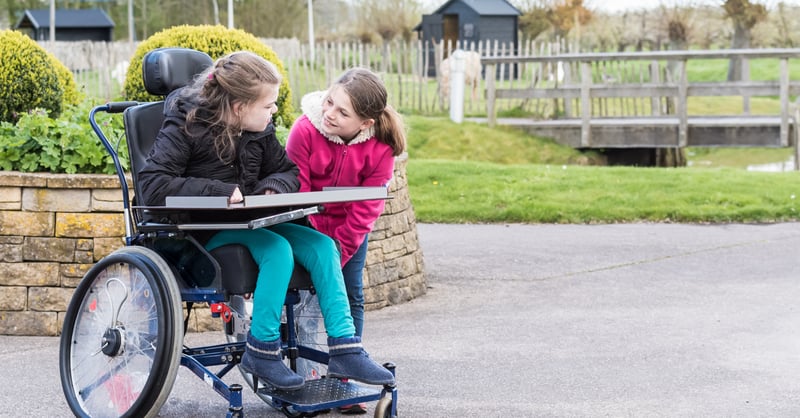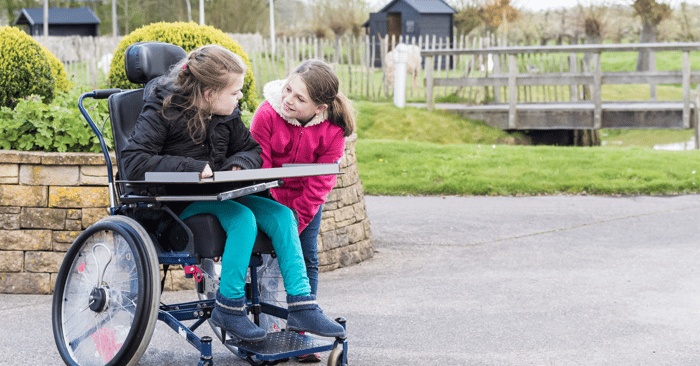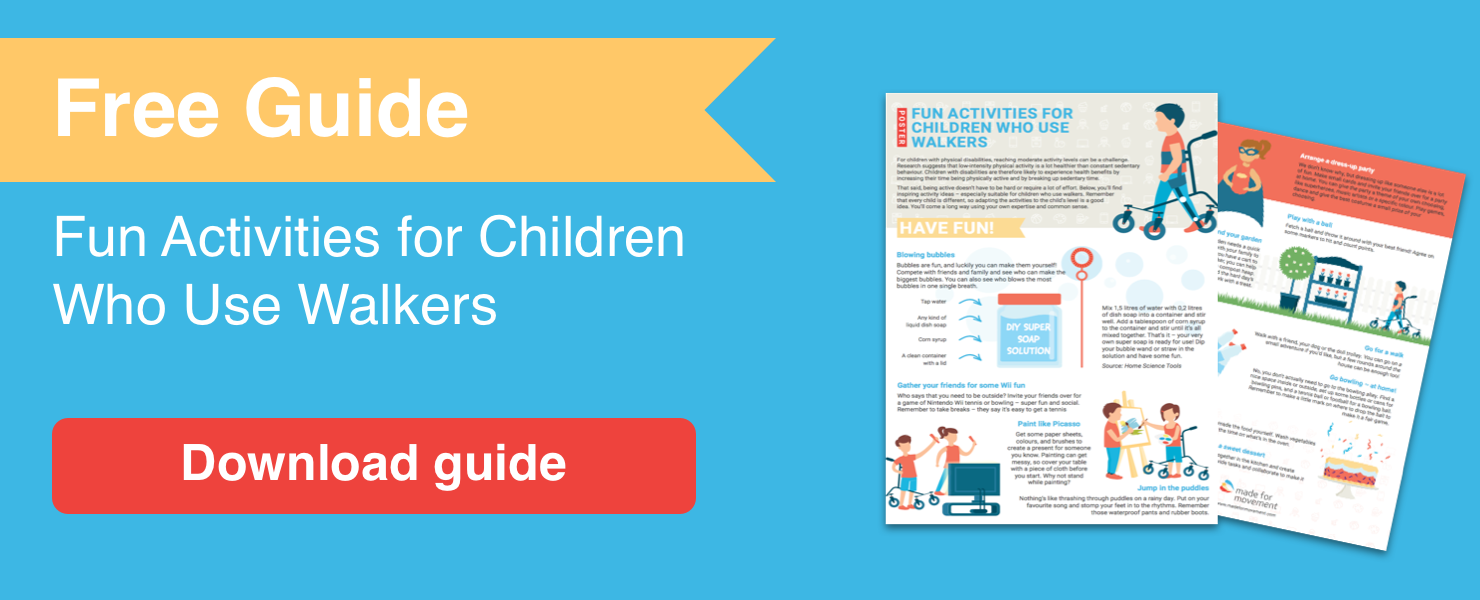
We tend to focus on children with disabilities and their parents, but what about the brother or sister? Let’s look at some of the issues these children face, and what you as a parent can do to better understand and support them.

They see their sibling for who they are
Having a sibling with disabilities will in many ways be different from having a typically developed sibling. Perhaps things are done differently compared to other families, and maybe their brother or sister is given more care and attention.
But like any other group of siblings, connections are built through shared experiences and feelings, creating a strong bond and a sense of mutual acceptance.
Siblings of children with disabilities tend to care a lot, and usually adapt well to the situation. In fact, research shows that growing up with a sibling with disabilities can make you more compassionate and better at teamwork. Labels are not present, and “special” and “disabled” are not in the vocabulary. This can be quite good as it allows the children to be themselves and grow to their full potential.
Read more: 4 fun and accessible water parks for children with disabilities
Caring can take its toll
Many able-bodied siblings take the role as a guardian, caring for and supporting their brother or sister. In addition, they might be heavily invested in educating other people on the fact that their sibling is much more than a disability. This usually comes at a cost and can be quite a burden to bear at times.
Jamie Davis Smith talks about this issue in a Washington Post article. According to Smith, a lot of these siblings feel isolated. They feel like they can't express their feelings properly, and at times, like they’re being asked to help too much. Their problems are often minimized or neglected because they're "the lucky ones”, an assertion that can be hard to deal with.
Children are more understanding than you might think
It can be difficult to notice that your child is having a hard time, in fact, they might not even be aware of it themselves. Bringing this up once in a while can help. Ask your children how they are, and make sure they feel comfortable enough to bring up any issues or problems, no matter how bad they might feel.
When brought forward, it’s important that you acknowledge your children’s worries and take them seriously. Doing this will require courage and honesty from you as a parent. Some parents are afraid their children won’t understand, but remember that children can grasp most situations very well. Don’t overcomplicate the issue; your typically developed son or daughter is not asking for a new sibling or a new family, but simply that their issues and feelings are acknowledged and discussed. It might not lift all burdens, but it can be enough to make life a little bit easier.
Read more: Having a child with disabilities: Living, challenges and finding time for yourself
You can also seek help outside your family
Remember that you don’t have to do this all by yourself. In fact, there are institutions, support groups, and events out there that can help. Some families choose to seek support early, as a preventive measure. Doing just that can help a lot, as it makes you better prepared and more confident in dealing with your situation in the future. In addition, external support can shine a new light on issues and relations between family members. It can also be comforting for your children (and yourself) to see and talk to other people in the same situation.


Die Autorin war sieben Jahre als Marketingleiterin bei Made for Movement tätig, bevor sie sich zu neuen Abenteuern im eigenen Unternehmen aufmachte. Trine Roald verfügt über mehr als 20 Jahre internationale Erfahrung in verschiedenen Branchen. In ihrer Funktion bei Made for Movement hat sie sich leidenschaftlich dafür eingesetzt, anderen durch echte Beispiele, Geschichten und Fachwissen zu vermitteln, wie die Lebensqualität von Menschen mit schweren Behinderungen verbessert werden kann.
The F-words: Fitness, Function, Friends, Family, Fun and Future help practitioners, educators, and families to create a supportive and...
In this blog, we take you on a deep dive into universal design so you can understand and recognize how these principles are...
A disability entails the loss of, damage to, or deviation from bodily or psychological functions, in the form of mental, physical,...
Hear from us from time to time and learn new things